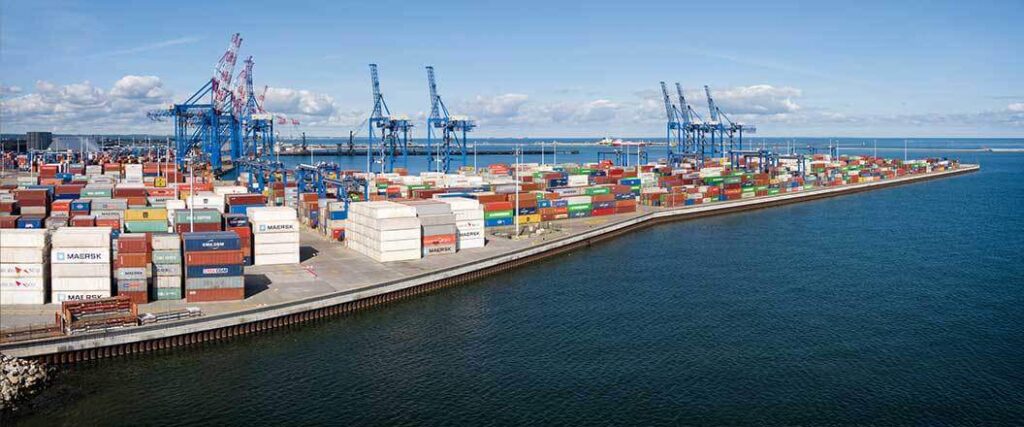The difference between freight insurance vs cargo insurance is something that freight forwarders, manufacturers and purchasers of goods struggle to discern. While these two forms of insurance have much in common, each of them is intended for use by two distinct audiences.
The Department of Transportation (DOT) states that freight forwarders must offer cargo insurance to potential shippers. This allows a shipper to protect themselves if their goods are damaged or lost. Freight insurance protects the freight forwarder and the carrier from responsibility in case the same scenario occurs.
We’ll discuss more in-depth the intricacies of freight insurance vs cargo insurance and why it’s important to understand the difference.
As stated above, freight insurance is meant to protect a freight forwarder and cargo insurance is meant to protect the shipper of goods in case of financial loss and damage.,
These two forms of insurance help out both freight forwarders and shippers in a few different ways such as:
Although these are two distinct forms of insurance coverage, both terms are often used interchangeably with one another in the transportation industry. We’ve outlined some details of each type of insurance down below so you can better identify them when looking for coverage options.
As a freight forwarder, you take responsibility for the freight organized on behalf of the customer. Although you don’t physically ship the freight yourself, the shipper who hired you will hold you responsible for the damages. Freight insurance covers you and the carrier moving the products in case damage or loss occurs.
It’s still possible to have a claim filed against you, even with freight insurance. After the claim is processed, you’ll need to pay the claim if there is evidence that proves you were negligent or made errors that caused damage to the freight.
Claims against freight forwarders, or even carriers, for damage or loss of freight rarely succeed. Even if the claim succeeds, you’ll only be responsible for paying an amount based on the weight of the goods that were shipped rather than an amount based on the value of the goods.
Cargo insurance covers the individual or party that’s shipping the freight. Regardless of the type of cargo or mode of transportation used, cargo insurance will compensate the shipper for the full value of their goods if an incident with their freight occurs.
Cargo insurance will protect a shipper if their goods are damaged or lost due to a variety of scenarios such as:
The data table shows some of the costs that these events have on the shipping industry in terms of having insurance companies pay back the value of things that are lost.
| Amount of goods damaged by weather events | $3.5 Billion |
| Amount consumable goods lost to cargo theft in 2020 | $3.96 Million |
| Amount lost from cargo containers gone overboard | $90 Million |
Source: Forbes, Statista and Bloomberg
Shippers of domestic and international freight can both obtain cargo insurance. If it’s international cargo insurance you’re looking for, you can obtain either marine cargo insurance or air cargo insurance depending on the mode of transport you choose.

For both types of insurance to work, a little bit of money has to be spent for there to be a large amount of coverage. While they share this similarity, freight insurance and cargo insurance are obtained and paid for in slightly different ways.
Freight insurance is paid both by the freight forwarder and the shipper of the goods.
Freight forwarders pay for the insurance when they prepare shipment. They then factor in the amount they paid for insurance into the total cost of their services that the shipper will pay for. Thanks to this arrangement, freight forwarders will always be compensated for the money they spend on insurance.
When it comes to paying cargo insurance, there are two different payment options that you can choose from.
Cargo insurance can be arranged by::
Going to an insurance broker yourself is a much more direct approach to obtaining insurance when you’re a shipper. That said, it can be time-consuming to complete this task on your own. Freight forwarders prepare every other aspect of a shipment, so letting them find you an insurance provider is a better option.
When a freight forwarder performs this task for you, they will do the following:
This doesn’t mean that your freight forwarder becomes your insurance provider; the insurance company is a separate entity. Your freight forwarder is only acting on your behalf in this instance. Lastly, your freight forwarder will factor your insurance premium cost into the rate they charge you for their services.

Carrier liability is completely different from freight insurance and cargo insurance. This term refers to a carrier’s responsibility to a shipper when freight is lost, suffers damage, or is delayed while in the carrier's care.
To a shipper, carrier liability insurance might seem to offer good enough protection for their goods and are a great substitute for regular freight insurance. While it’s true that carrier liability policies will cover damage to your shipment of freight, there are exceptions where you won’t be covered.
If you’re a shipper, it's a good idea to get cargo insurance in case something happens to your freight that won’t be covered by carrier liability.
Both freight insurance and cargo insurance are usable for any mode of transportation. Freight forwarders organize domestic and international shipments and shippers send domestic and international shipments.
To carry these shipments out, a variety of transport options are available:
Whether you’re a freight forwarder or shipper, these insurance options keep you covered across many transport modes.

Cargo insurance can become a bit more complex when covering international shipments. Many shippers and receivers use what’s called Incoterms when conducting business. Incoterms are 11 different and universal rules created by the International Chamber Of Commerce (ICC).
They help shippers and receivers better understand each other's responsibilities when dealing with international shipments. One of these rules establishes who will be responsible for insurance. Depending on the Incoterms, the shipper or receiver may be responsible.
There are 11 Incoterms total, but four in particular cover insurance rules.
The CPT is an older Incoterm that was under the 2010 edition of the rules. CIP is the newer iteration of this Incoterm that adds insurance coverage. When shipping goods internationally, shippers need to communicate with their buyers on which Incoterms both will use.
At Freight Insurance Coverage, all shipments of freight will automatically have cargo insurance applied to them and the price of the insurance will be factored into your quote. While many carriers do their best to load and unload freight carefully, accidents can happen at any time. There’s also the risk of natural disasters occurring as well.
Cargo insurance will ensure you have the protection you need for your freight. In addition to our insurance coverage, you’ll also have access to a variety of carriers that can ship your freight when you choose us as your 3PL.
Some of the shipping carriers we partner with provide services for:
If you’re to ready ship, fill out your quote below or contact our team at (866) 975-0749 for more information.
Freight Insurance Coverage
315 NE 14th Street #4122
Ocala, FL 34470